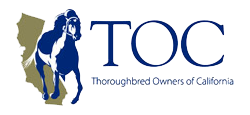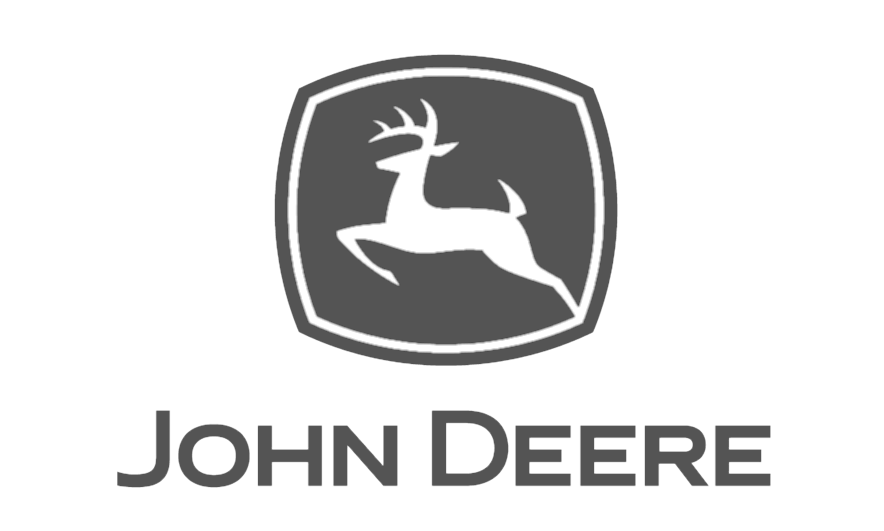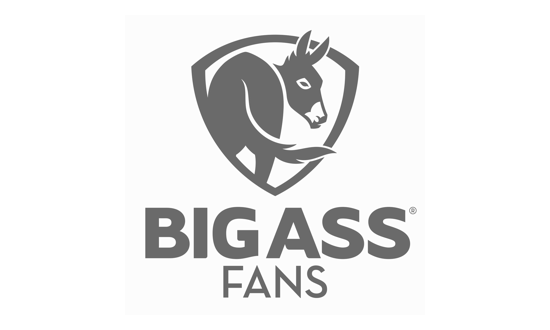By Laura Grubb
Powerful pieces of paper they are, those purse contracts, which outline California’s racing programs, spell out how millions of dollars will be spent in stakes schedules, and grant approval for the simulcasting of California’s races.
Purse contracts originated to provide for an orderly and uniform method of distributing purses to both overnight and stakes races. They have since evolved to cover a multitude of items, and to provide a clear written understanding between the tracks and horsemen in order to avoid controversies that could interfere with the conduct of race meetings.
Negotiated on behalf of owners by TOC’s Don I. Johnson and John Van de Kamp, and overseen by members of TOC’s Purse Committee, TOC’s purse contracts are officially known as “Race Meet Agreements,” and are hammered out between TOC and individual track’s management prior to the start of a meet. These agreements cover not only purses, but also simulcasting, stall assignments, and owners’ proprietary rights.
While purse contracts weren’t written to keep you entertained, they do contain many provisions affecting your racing stable. So take a minute to “peek inside” a purse contract.
Contract Determines How a Purse Under or Overpayment Will Be Made
While not rocket science, determining the purse money available for a race meet is not the easiest of tasks, either. Daily purse distributions are usually based upon figures from the previous year’s meet, with adjustments to the distribution usually being made at meet’s end in the form of “over” or “under” payments. Calculating over or underpayments can take months, due to the intricacies of modern simulcasting and the complex tallying of figures involved.
TOC personnel constantly monitor purse distributions to see if an underpayment is building, or if an overpayment is looming. The purse contract spells out how such over and underpayments should be made. If at the meet’s end the racetrack has made an overpayment, meaning that it paid out more purse money than was generated for purses, the amount overpaid is deducted from the purse account in the succeeding year.
However, if the track has underpaid purses in an amount greater than $ 150,000 – $ 250,000, (this amount will vary from track to track), the track is bound by terms of the purse contract to issue a retroactive payment to those owners earning money at their meet. Such underpayments are issued to owners in proportion to the amount of overnight purse money the owner earned. If the track has made insufficient payments to the purse account in an amount less than $ 150,000 – $ 250,000, the deficiency is carried forward and added to the succeeding year’s purse account.
Unfortunately, purse reductions are occasionally warranted during a racemeet when the wagering handle is depressed and purse revenues are lower than expected. With written consent from TOC, tracks can reduce purses as long as the reduction is uniformly applied to both overnight and stakes races. Likewise, occasionally purses may be increased during the meet when the amounts handled continue to exceed projected expectations. Such increases must be applied both retroactively and prospectively to the meet’s purses, and are usually applied solely to overnight races. The purse contract also requires that all monies available for purses be held in a separate account for the benefit of horsemen, and not commingled with the monies belonging to the tracks. The track retains a Paymaster of Purses to manage these monies, which accrue reasonable interest. This interest can be substantial, and 50% of it is returned to owners in the form of purses for a series of starter allowance races at the race meet where the interest is generated. The track retains the remaining 50%.
Stakes Schedule and Overnight Racing Programs are Outlined
The purse contract covers both the stakes and overnight racing programs’ content, and TOC’s Purse Committee is heavily involved in these programs’ design. In Southern California, between 25-28% of total purse money is usually allocated to a racemeet’s stakes program. This 28% can be substantial, as at Santa Anita’s 2000 meet it amounted to $10.4 million. (The TOC Purse Committee has consistently attempted to reduce the total purse money allocated to stakes.) In Northern California, not more than 15% of the purse distribution is generally allocated to stakes. The remaining percentage is allocated to overnight races, and divided up into claiming, allowance, and overnight stakes races. While the track’s racing secretary develops the daily racing card depending upon the local horse inventory, the purse contract outlines the racemeet’s minimum claiming price, along with minimum purse levels for the various race categories.
In an effort to make those races listed in the condition book go, and thus give owners and trainers definitive races to point towards, the purse contract also states that when six horses are entered in an allowance or overnight stakes race under separate wagering interests, the race is considered filled and will be run. For all other overnight races, when seven horses enter separately the race is considered filled and will run. This provision was implemented in order to give owners and trainers confidence that those races listed in the condition book will be contested and allows them to plan their training schedules accordingly.
Stall Assignments & Training Facilities Also Addressed
In order to provide owners with adequate stalls and training facilities, the purse contract also outlines the minimum number of stalls that the track will provide, and requires that they be in good condition for stabling of horses. In an attempt to be fair and not allow individual trainers to dominate a racemeet, the contract also sets a maximum number of stalls that any one trainer can have. Those trainers needing additional stalls usually find excess stabling at an auxiliary training facility approved by the CHRB and the track.
The purse contract also requires that a track open their main track and training track (if one exists) for a definitive period of time before and after the meet’s running for training purposes (without cost to owners), and requires that the track maintain their training facilities in a safe condition. The purse contract also establishes minimum workouts that first-time starters or horses coming off of a layoff must complete before entering races. Furthermore, the contract requires that ambulances for both horses and humans be fully manned and operational during both training and racing hours.
Owners’ Proprietary Rights Set Forth
Should a track desire to use the name, image, or likeness of a particular horse for promotional or commercial purposes (other than the promotion of live racing, simulcasting, or wagering) the track is obligated to contact the individual owner(s) to obtain permission to do so. However, owners need to be cognizant that the nomination of or entry of a horse into a race shall be deemed to be authorization for the track to use the name, image, or likeness of that horses for promotion of that race.
In the context of simulcasting or broadcasting races, the proprietary rights created by the collective image of the race belong to all owners participating in the given race meeting. The tracks negotiate exclusively with TOC for the consensual use of this image for purposes of simulcasting and televising. However, if a track receives compensation for a race sold to television or an interactive wagering service, or for other commercial purposes, then TOC’s prior consent must be obtained before doing so, and a reasonable contribution to overnight purses must be negotiated.
The Right to Simulcast Included
As simulcasting today (both inter and intrastate) accounts for approximately 75% of the handle, the purse contract gets quite specific as to how tracks may simulcast California’s races. In accordance with the Federal Interstate Horse Racing Act of 1978, TOC’s consent must be obtained before the track exports California’s racing signal. To do so, the track submits to TOC a list of simulcast outlets to which it wishes to send the racing signal, along with the amounts which the guest racing association is willing to pay for this signal. Upon review, during which adjustments to the amount paid for the signal are occasionally made, TOC usually issues letters of consent, although this consent can later be revoked by TOC with 48 hours’ written notice. Additional simulcast outlets and races can be added to the contract subsequent to its execution, once again with TOC’s written consent. For simulcast imports, the track notifies TOC of the interstate and international simulcast races that will be shown, and provides copies of written agreements from those locations from which the track wishes to import.
Purse monies and commissions generated by all simulcasting are divided in accordance with California horse racing law, and are usually shared equally between purses and track commissions.
Other Provisions
Other purse contract provisions of interest include the requirement that an owner’s valid CHRB license allow them free admittance to the track’s clubhouse, that owners silks be washed after being worn in a race, a prohibition against the track limiting the free enterprise marketplace providing backstretch supplies to trainers, and a provision that covers stabling and vanning from auxiliary training facilities.
Of special interest to owners is a “fire and disaster insurance” clause that requires the track to acquire and pay for Fire and Disaster insurance. This coverage protects owners against the loss, in part, of their horses due to fire or disaster.
Contracts Negotiated in a Spirit of Cooperation
Horse racing by nature is synergistic, with its various members working in an interdependent manner. While the industry can be fractious and fragmented at times, its leaders realize that no one component, be it the track, owners, trainers, or breeders, can singularly exist. Thus TOC and California’s tracks negotiate purse contracts in a spirit of cooperation. As the purse contracts state, both parties “are mutually interested in the continuance, maintenance, and improvement of Thoroughbred racing in the State of California.” The purse contract is also an instrument to this end.






